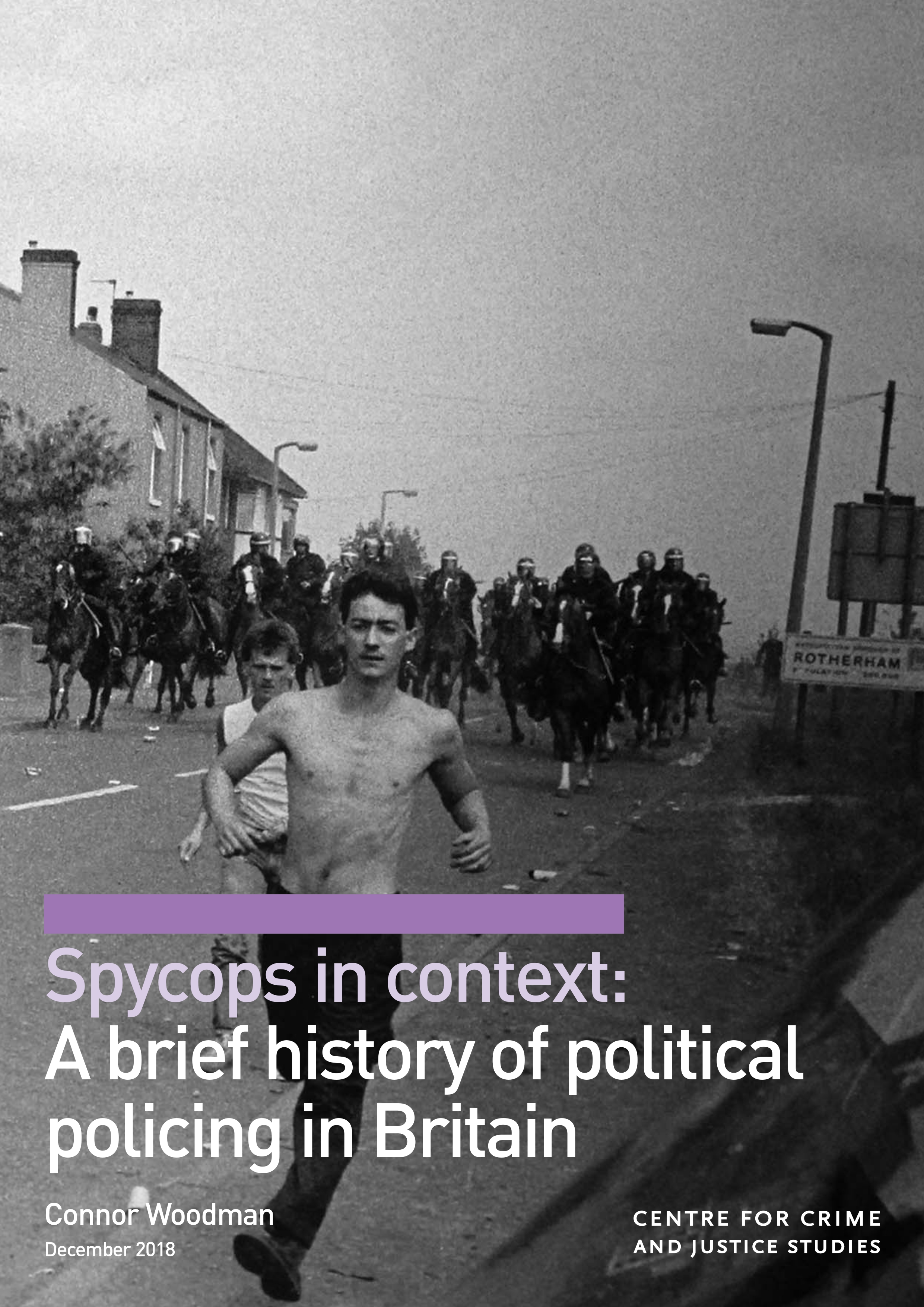The first of two papers that seek to historicise and analyse state infiltration, revealing it as one tactic in a much larger repertoire of political policing.
This first paper demonstrates the breadth of state monitoring and operations against those challenging the unequal status quo. From the Fenians to the suffragettes, anti-war campaigners to striking miners, nearly every organisation which has sought to challenge elements of the social hierarchy has been caught in the British state's glare.
A brief history of political policing is split into two sections. The first examines state repression of dissent prior to the 1960s, including the harsh crack-down on the late 1910s labour struggles and 1926 General Strike, and the massive state campaign against the Communist Party of Great Britain.
The second section details the climate of political struggle and elite anxiety which motivated the Metropolitan Police to establish a dedicated unit for penetrating political organisations, the Special Demonstration Squad, in 1968, and surveys the secret state’s concern with late-twentieth century dissent from Trotskyism to Black Power, the National Union of Mineworkers to animal rights activists. The section also contains new information on the establishment of the National Public Order Intelligence Unit at the end of the twentieth century.
In sum
The wider historical view presented in Spycops in context shows how the two units dedicated to undercover infiltration of political organisations – the Special Demonstration Squad and National Public Order Intelligence Unit – cannot be viewed as 'rogue' aberrations. They were part of a long-running political policing apparatus designed to bolster the state quo against dissenters.
The Spycops in context papers are the result of a year-long Research Fellowship kindly funded by the Barry Amiel and Norman Melburn Trust.

